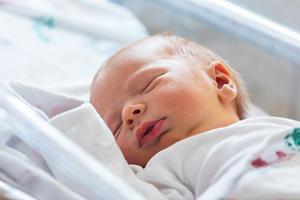Help Center
Online Resource Center for Information on Birth Injuries.

Cerebral palsy is not actually a singular condition but rather a cluster of related movement disorders caused by impairment of the brain’s control over muscle movements. CP is caused by injury to the developing brain of a baby during childbirth or pregnancy. This page will discuss the process of diagnosing a child with cerebral palsy.
Receiving a diagnosis of CP is not always a straight path and there is no single test to determine with complete certainty that a child has cerebral palsy. Screening for CP is often done when a child has risk factors for developing cerebral palsy or when a child is delayed in meeting certain developmental milestones. It is important to keep in mind that not all children who miss developmental milestones have CP. A CP diagnosis is often given when other diagnoses or reasons for a child’s developmental delays are eliminated.
Your child’s pediatricians, developmental specialists, rehabilitation physicians, and neurologists will determine when to give your child a diagnosis of cerebral palsy and will collect the following information:
The information from those comprehensive evaluations will be considered alongside imaging of the child’s brain including head ultrasounds and MRIs. Other tests may include genetic, metabolic or a combination of both.
Typically, a doctor will make the diagnosis of CP when a child is between the ages of one and three years. Some more subtle cases of CP may go undiagnosed for a longer period of time as clinicians may take additional time to rule out other diagnoses and observe the child’s development. Another reason for extended periods of observation is that CP is diagnosed when motor delays persist and the child does not outgrow them. Some clinicians are beginning to use a screening tool called the General Movements Assessment as a way to try and diagnose cerebral palsy much earlier. Regardless of when and if the diagnosis of cerebral palsy is made, it is critical that children who are considered “at risk for cerebral palsy” are identified as early as possible so they have access to support and services while the brain is still in early development.
Receiving a diagnosis of cerebral palsy is overwhelming. However, over time and with professional guidance and support, coping with the diagnosis will become less daunting. Having a diagnosis allows you to better help your child, giving you a way to strategically organize your thoughts and actions around your child’s specific problems.
A diagnosis of CP impacts many aspects of care. For example, the type of CP your child has guides treatment decisions and determines which therapies and treatments are available and recommended. In addition, a CP diagnosis signals the need for screening and monitoring for conditions that may accompany CP, such as seizures and visual impairment. Having a diagnosis also accelerates the process of getting insurance approval for medication, equipment, therapy services and/or in-home nursing care, and points you in the direction of how to help your child. Remember a CP diagnosis does not define your child or their future. Rather, it enables you and their medical team to hone in on the specific interventions that will make a difference for your child.